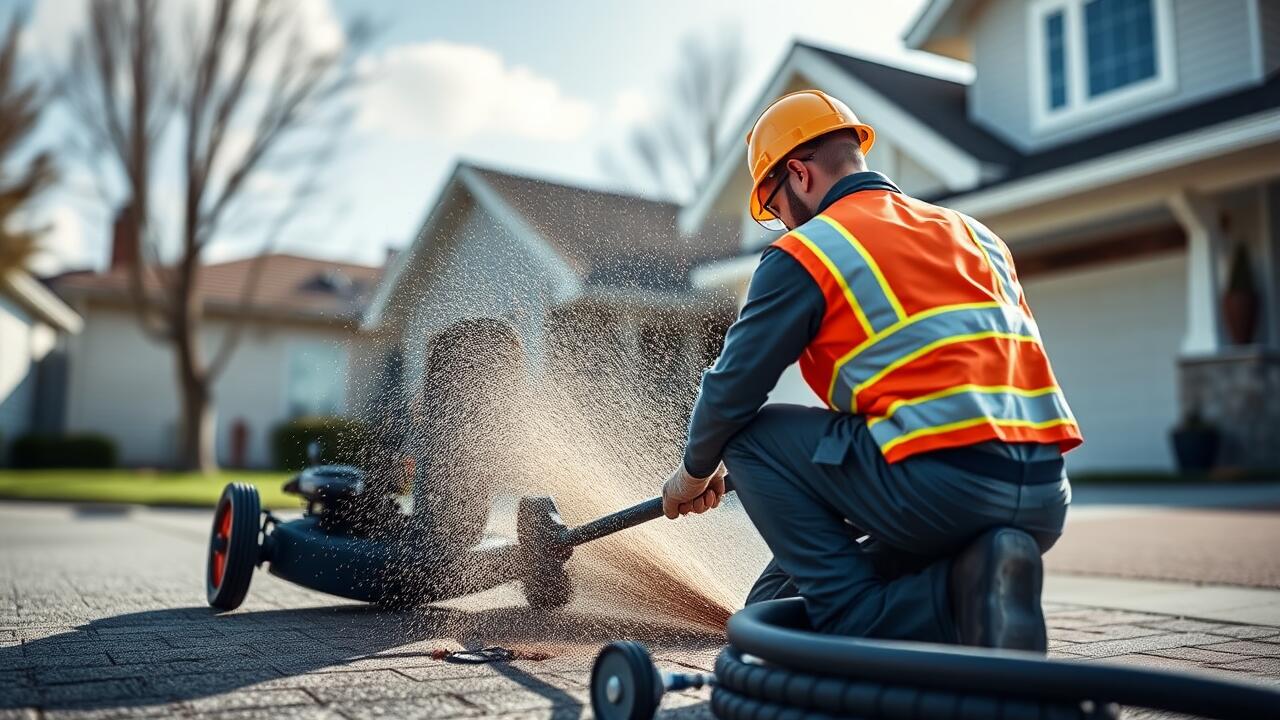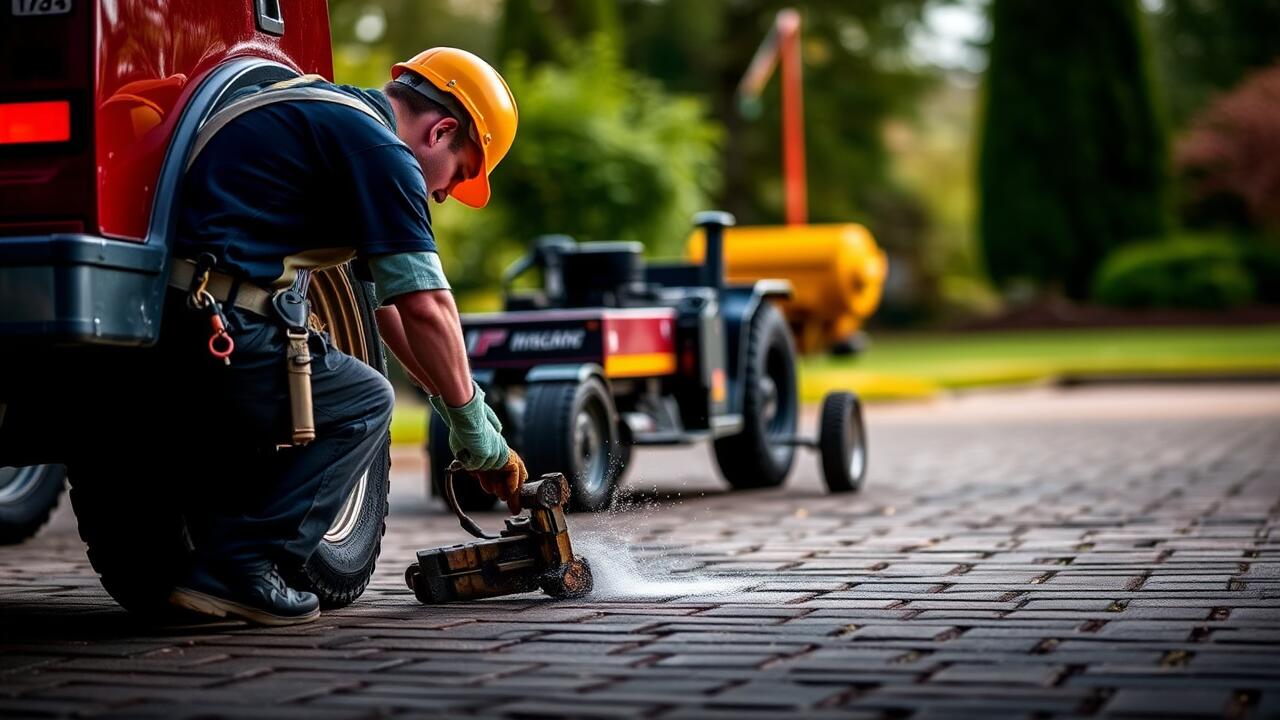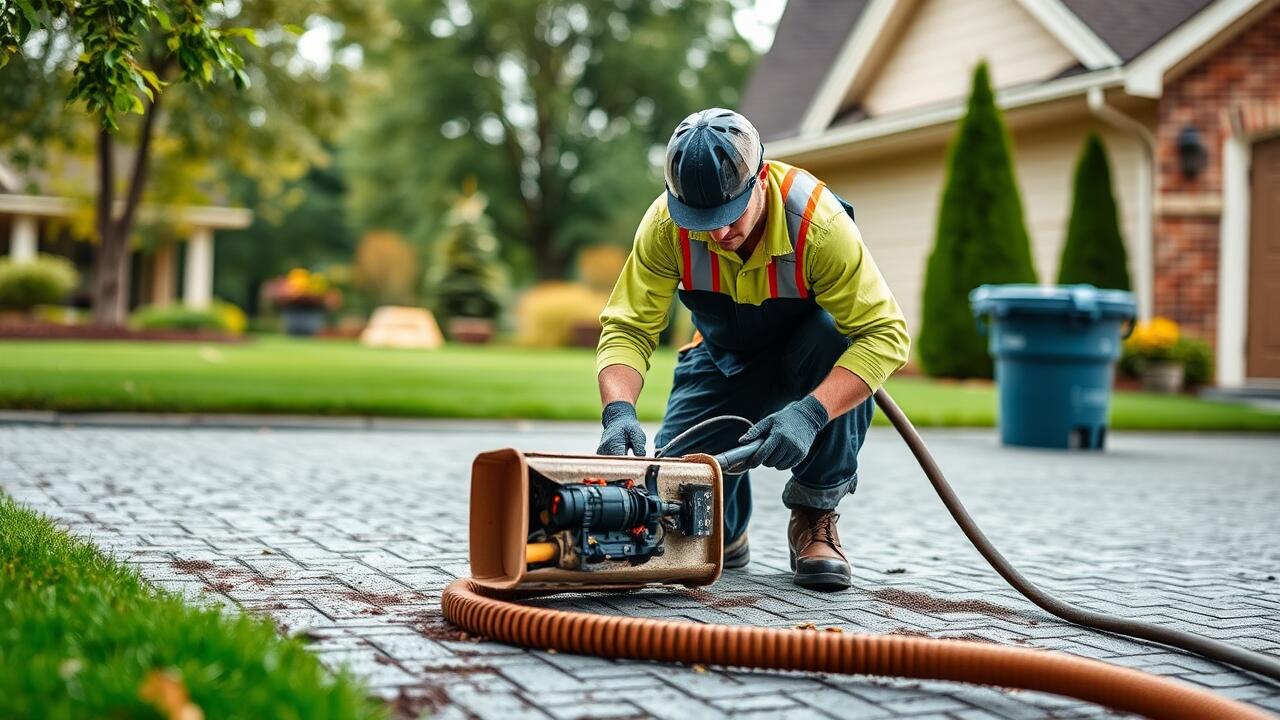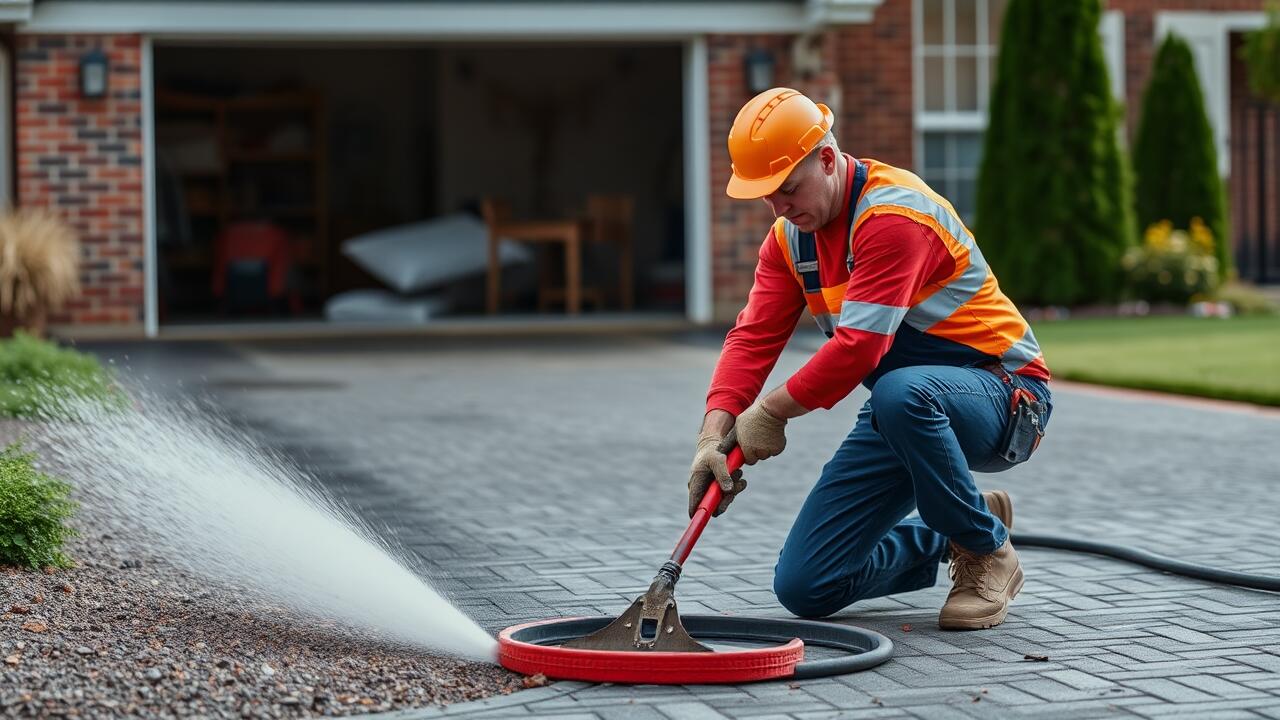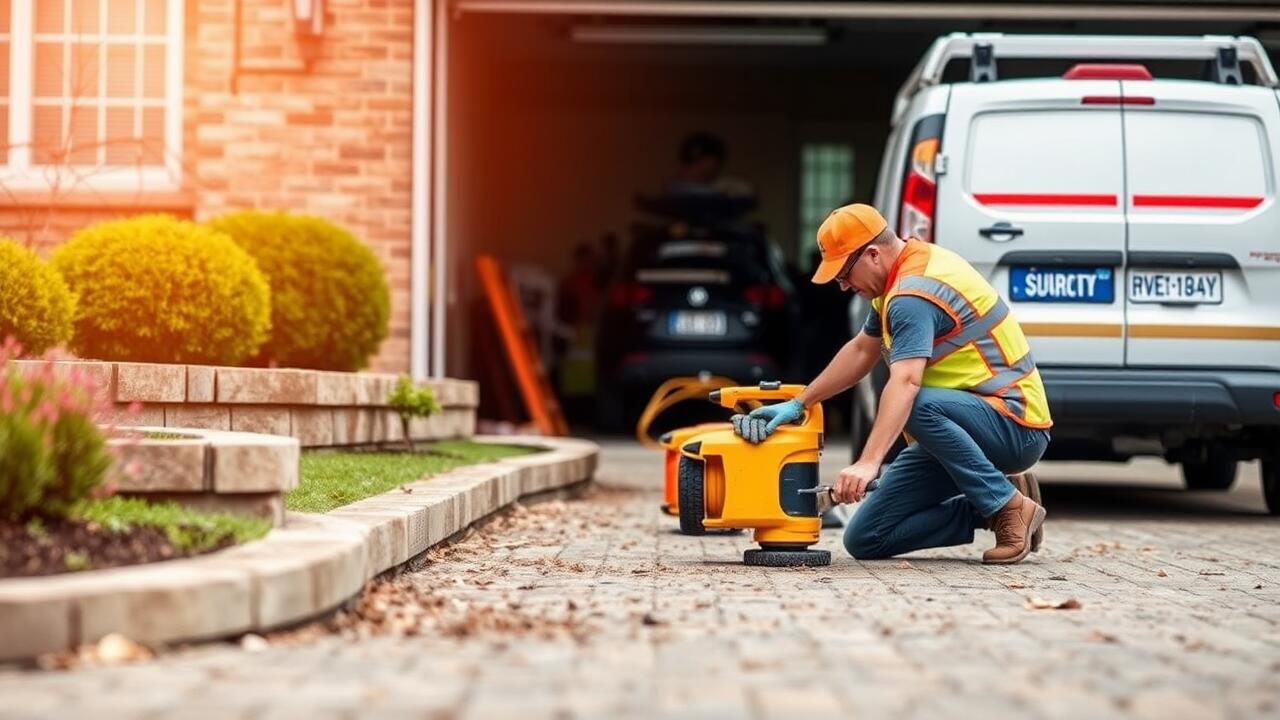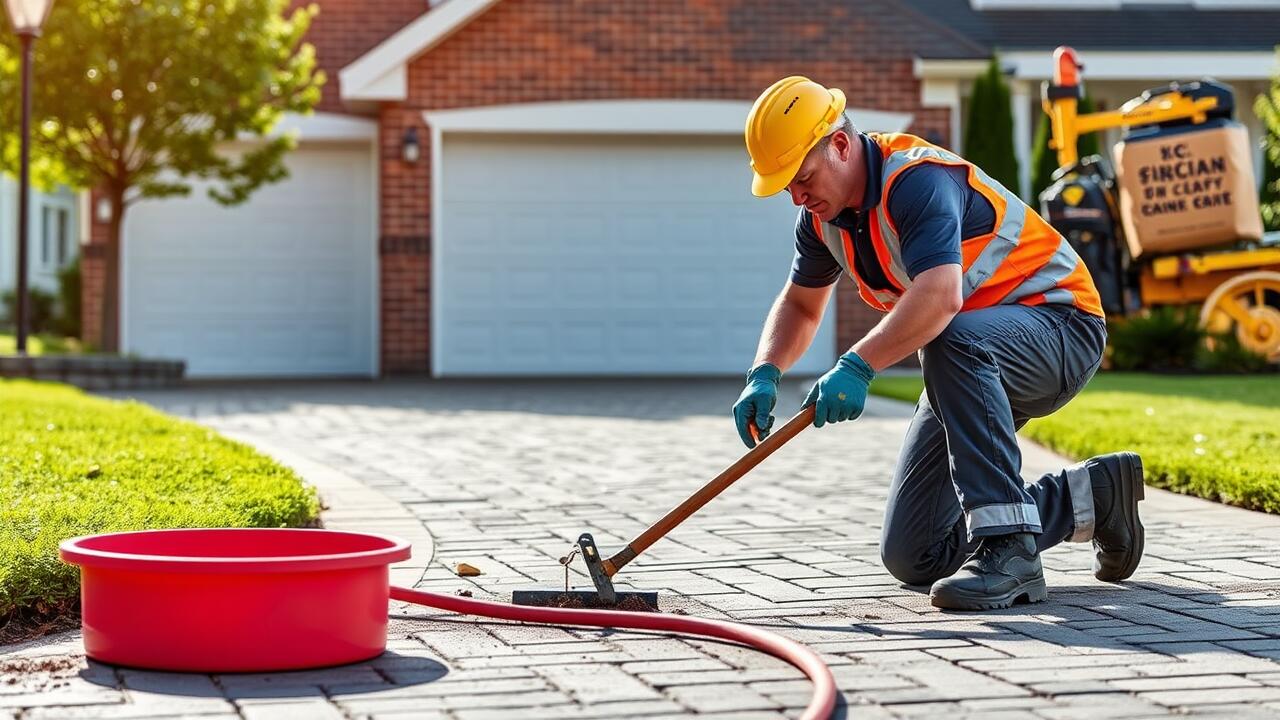
Comparing Exposed Aggregate to Other Driveway Types
Exposed aggregate driveways offer a distinct aesthetic compared to more traditional materials such as asphalt or plain concrete. While asphalt provides a smooth, dark surface that is often budget-friendly, it lacks the decorative appeal found in exposed aggregate. The latter allows for a textured finish showcasing various stone and mineral combinations, enhancing overall curb appeal. Homeowners looking for unique designs may find that exposed aggregate aligns more with their vision than other driveway options.
When evaluating exposed aggregate against paver driveways, durability and maintenance come into play. Paver driveways offer easy repair options; individual stones can be replaced as needed. In contrast, exposed aggregate may require more effort for repairs since the removal and replacement of the entire slab can be necessary. For those considering driveway options in the Phoenix area, Driveway Installation North Mountain provides services that help homeowners weigh these factors against their particular needs and preferences.
Advantages and Disadvantages
Exposed aggregate driveways offer several advantages that make them a popular choice among homeowners. Their unique aesthetic appeal, achieved by revealing the aggregate beneath the surface, allows for a range of design possibilities, from classic to contemporary. This type of driveway also provides excellent traction, making it safer during wet conditions. Maintenance is generally manageable; occasional cleaning and sealing can keep the surface looking fresh and prevent wear. Additionally, the durability of exposed aggregate can withstand heavy loads, making it suitable for vehicles and foot traffic alike, particularly in areas such as Driveway Installation North Mountain, Phoenix.
However, there are disadvantages to consider when opting for exposed aggregate driveways. The initial installation cost can be higher than for standard concrete or asphalt driveways, which may deter some homeowners. While they are long-lasting, exposed aggregate surfaces can also be prone to specific issues like chipping or staining if not properly maintained. Over time, the stones may become loose, requiring repairs and attention. Seasonal temperature fluctuations can also lead to cracking if the expansion and contraction of materials are not adequately managed during installation.
Choosing the Right Aggregate Material
Selecting the right aggregate material is essential for achieving the desired aesthetic and structural durability of an exposed aggregate driveway. Various types of aggregates are available, including natural stones, recycled glass, and crushed concrete. Each option comes with its unique characteristics, such as color, texture, and size. Natural stones like granite or limestone often provide a classic look, while recycled glass can add a modern twist with vibrant colors. The choice of aggregate will impact not only the visual appeal but also the longevity and maintenance of the surface.
For those considering driveway installation North Mountain, Phoenix, it is advisable to assess local climate conditions and typical foot traffic when selecting materials. Different aggregates can perform differently based on weather patterns and surface use. Consulting with a professional can help homeowners understand the best options for their specific needs. Proper selection will ensure that the driveway remains functional and visually pleasing over time.
Types of Aggregates and Their Characteristics
When selecting the right aggregate for exposed aggregate driveways, it's essential to understand the various types available. Commonly used aggregates include river stones, granite, and limestone. River stones offer a smooth, polished appearance and come in a wide array of colors. Granite provides durability and strength, making it suitable for heavy traffic areas. Limestone, while softer and more affordable, tends to have a more natural look but may require more maintenance over time. Each type of aggregate can significantly affect the overall aesthetic and functionality of the driveway.
The characteristics of these aggregates play a crucial role in the long-term performance of the driveway. River stones might be slip-resistant, making them safe for wet conditions, while granite tends to be more resistant to wear and tear. Limestone can be more susceptible to stains but can be treated with sealants to enhance its lifespan. For those considering Driveway Installation North Mountain, Phoenix, knowing the properties of these aggregates will ensure that your choice aligns with your design preferences and practical needs.
Common Issues with Exposed Aggregate Driveways
Exposed aggregate driveways, while aesthetically pleasing, often face common issues that homeowners should be aware of. One prevalent concern is surface wear and tear. Over time, the aggregate surface can become smooth due to the impact of vehicular traffic and weather exposure. This can diminish both the traction and the visual appeal of the driveway. Cracking is another issue that can arise from temperature fluctuations, heavy loads, or improper installation techniques. These cracks can lead to further deterioration if not addressed promptly.
Another significant problem is the potential for weed growth between the exposed aggregates. Weeds can take root in the small gaps, leading to an unattractive appearance and even structural damage if allowed to proliferate. Additionally, if the aggregate is not sealed properly, moisture can seep in, which can cause efflorescence or other staining materials to surface. Homeowners considering options like Driveway Installation North Mountain, Phoenix should take these common issues into account and work with experienced professionals to mitigate potential problems.
Identifying and Addressing Problems
Exposed aggregate driveways can encounter various issues over time. Cracking is a common problem often resulting from improper installation or settling. When the surface begins to show signs of wear or scaling, this can indicate that moisture has penetrated beneath the surface. Maintaining attention to these warning signs can prevent more extensive damage, ensuring the longevity of the driveway.
For homeowners in North Mountain, Phoenix, regular maintenance is essential to keep an exposed aggregate driveway in good shape. Addressing issues promptly can involve sealing cracks and eliminating stains. In some cases, a professional evaluation may be necessary to determine if repairs can be made or if a full resurfacing is required. Choosing experts familiar with local climate conditions and materials can greatly enhance the quality of driveway installation and maintenance.
FAQS
What is an exposed aggregate driveway?
An exposed aggregate driveway is a type of concrete driveway that features a textured surface created by removing the top layer of cement to reveal the underlying aggregates, such as stones or pebbles, which provide both aesthetic appeal and durability.
How does exposed aggregate compare to other driveway types?
Exposed aggregate driveways offer a unique look and can be more slip-resistant than standard concrete driveways. They are generally more durable than asphalt driveways but may require more maintenance compared to plain concrete surfaces.
What are the advantages of having an exposed aggregate driveway?
The advantages include enhanced curb appeal, a variety of design options, excellent durability, and improved drainage due to the porous surface, which helps prevent water pooling.
Are there any disadvantages to exposed aggregate driveways?
Some disadvantages include the potential for higher initial costs, susceptibility to staining, and the possibility of rough surfaces that may not be ideal for all vehicle types.
How do I choose the right aggregate material for my driveway?
When choosing aggregate material, consider factors such as color, size, texture, and whether the material complements your home’s design. It’s also important to think about local climate conditions and how they might affect the aggregates you select.
What common issues should I watch for with exposed aggregate driveways?
Common issues include cracking, efflorescence (white powdery residue), staining, and the growth of weeds in the joints. Regular maintenance and sealing can help prevent these problems.
How can I address problems with my exposed aggregate driveway?
Identifying issues early is key. For cracks and stains, you can use concrete repair kits or sealants designed for exposed aggregate. For weeds, regular maintenance and applying a weed killer can help keep them at bay.
Is sealing necessary for exposed aggregate driveways?
Yes, sealing is highly recommended as it protects the surface from stains, enhances color, and helps prevent damage from water infiltration and freeze-thaw cycles. Regular sealing can prolong the life of the driveway.
